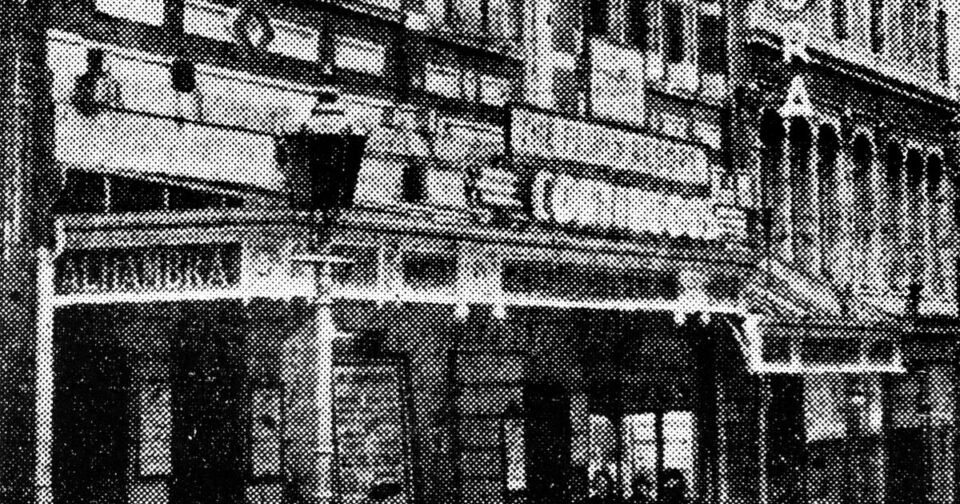With the world premiere of the musical stage version of ‘The Artist’ making its debut in Plymouth this Saturday, we thought it would be interesting to turn the clock back a hundred years to the 1920s.
Back then, the silent movie era was in full swing and local audiences, and indeed audiences the world over, could not get enough of the silver screen offering and the stars it created. Stars whose looks, mannerisms and personalities made them famous, and whose vocal talents were irrelevant.
Devonport, before the Second World War, had a number of silent movie houses: The Tivoli (Fore Street), the Electric (Fore Street), the Coliseum (St Aubyn Street), and the Morice Town Picture Palace, all opened between 1909 and 1914.
Read more:
Sadly, the Coliseum burnt down shortly afterwards – fire was always a hazard with nitrate film stock; the Morice Town Picture Palace went the same way in 1931, while the Tivoli closed in 1939, presumably, in part, on account of the opening of the state-of-the-art Forum, in Fore Street, the previous year.
More enduring was the Alhambra Theatre (formerly the Metropole), in Tavistock Street, which doubled as a cinema for a number of years in the 1920s and early ’30s. It had been the opening of this venue, and that of the Hippodrome, in Princes Street, that did for the old Dock Theatre back in 1899.
Both the Metropole and the Hippodrome were ‘earthier’ than the Grand Theatre and Theatre Royal in Plymouth, with the Hippodrome “presenting revues, musicals, and, of course, variety. Gracie Fields made a very early appearance there when she was completely unknown, and so did the young Jack Train. Talent concerts were the vogue and in the early days of the Hippodrome the legendary long hook was pushed forward from the prompt side to pull off those who did not please the patrons in front”. (Harvey Crane, ‘Playbill’).
Jack Train, incidentally, was a comic entertainer and former Regent Street schoolboy from Plymouth who became nationally famous via various radio series, starting with Tommy Handley’s ‘ITMA’ (It’s That Man Again).
With seating for about 2,000, the Hippo (as its roof proclaimed) was relaunched in December 1929 as a cinema, screening MGM’s ‘Broadway Melody’ – the world’s first ‘talking’ musical.
At the end of the 1930s, the Hippodrome became part of the County Cinema circuit. Around the same time, a large site that included the former Princess Street Chapel was purchased by a Welsh-based firm with the ‘intention of building a kinema’. It placed a tiled facade over the top of an earlier, Victorian, Fore Street frontage and the following year, 1938, the Forum Cinema was opened.
Away from the heart of Devonport, there was also the Ford Palladium (the former, late-Victorian Theatre Metropole), in St Levan Road; the short-lived Star or Assembly Hall Cinematograph Theatre at Camel’s Head; and the 750-seater State, in St Budeaux. The latter opened with a showing of ‘That Certain Age’, the latest vehicle for the popular actress/singer Deanna Durbin, on November 16, 1939, two months after war had been declared.
Just as old theatres and music halls in Devonport had made the switch to cinema and then lost ground to new, purpose-built picture palaces, so too did theatres in Plymouth and indeed everywhere else that was seduced by the stars of the silver screen. Next week, we will have a look at the early picture houses of Plymouth.
Meanwhile, for the record, the storyline of ‘The Artist’, which is set between 1927 and 1932, and as a movie was nominated for 12 BAFTAs and won seven, follows a silent movie icon, George Valentin, who falls for aspiring actress Peppy Miller. This new stage production recalls that bygone era of silent movies as, almost overnight, it transformed into the Talkies.

